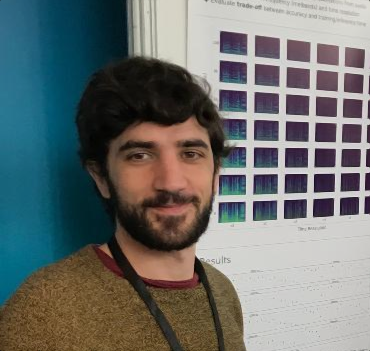It's Not You, It's Me: The Impact of Choice Models and Ranking Strategies on Gender Imbalance in Music Recommendation
Abstract
References
Index Terms
- It's Not You, It's Me: The Impact of Choice Models and Ranking Strategies on Gender Imbalance in Music Recommendation
Recommendations
Break the Loop: Gender Imbalance in Music Recommenders
CHIIR '21: Proceedings of the 2021 Conference on Human Information Interaction and RetrievalAs recommender systems play an important role in everyday life, there is an increasing pressure that such systems are fair. Besides serving diverse groups of users, recommenders need to represent and serve item providers fairly as well. In interviews ...
Investigating gender fairness of recommendation algorithms in the music domain
AbstractAlthough recommender systems (RSs) play a crucial role in our society, previous studies have revealed that the performance of RSs may considerably differ between groups of individuals with different characteristics or from different ...
Highlights- Novel large-scale real-world dataset of music listening records.
- Debiasing ...
Girls Rocking the Code: Gender-dependent Stereotypes, Engagement & Comprehension in Music Programming
ICSE-SEET '24: Proceedings of the 46th International Conference on Software Engineering: Software Engineering Education and TrainingOne of the greatest challenges in early programming education is to achieve learning success while also creating initial interest. This is particularly difficult for girls, who continue to be affected by persistent societal stereotypes and negative ...
Comments
Information & Contributors
Information
Published In

Sponsors
- SIGWEB: ACM Special Interest Group on Hypertext, Hypermedia, and Web
- SIGAI: ACM Special Interest Group on Artificial Intelligence
- SIGKDD: ACM Special Interest Group on Knowledge Discovery in Data
- SIGIR: ACM Special Interest Group on Information Retrieval
- SIGCHI: ACM Special Interest Group on Computer-Human Interaction
Publisher
Association for Computing Machinery
New York, NY, United States
Publication History
Check for updates
Author Tags
Qualifiers
- Short-paper
- Research
- Refereed limited
Funding Sources
- U.S. National Science Foundation
- Salzburger Landesregierung
Conference
Acceptance Rates
Contributors
Other Metrics
Bibliometrics & Citations
Bibliometrics
Article Metrics
- 0Total Citations
- 285Total Downloads
- Downloads (Last 12 months)285
- Downloads (Last 6 weeks)76
Other Metrics
Citations
View Options
View options
View or Download as a PDF file.
PDFeReader
View online with eReader.
eReaderHTML Format
View this article in HTML Format.
HTML FormatLogin options
Check if you have access through your login credentials or your institution to get full access on this article.
Sign in


